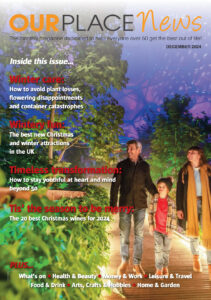Over-50s – especially Britons who are overweight – should stay at home during the coronavirus crisis to protect the NHS, an expert has claimed.

The Daily Mail reports that Mike Fischer CBE, who runs a medical research lab in Oxford, warned the actions of those in their 50s and beyond will be ‘critical’ for the NHS.
Official data – collated by the Intensive Care National Audit and Research Centre from NHS critical care units – shows more than 54 per cent of COVID-19 patients admitted for urgent care are aged between 50 and 69 years.
It comes as scientists argue people in their 60’s should be included in Government’s total isolation guidance because they are at an
increased risk of severe COVID-19 illness or death.
They point to data from countries such as China and Italy that show those in their 60’s are at high risk of complications and death from the novel coronavirus. This risk is lower compared with those aged 70 years or older, however.
Current Government guidance suggests those aged 70 or older should be more rigorous in following social distancing measures.
The guidance also applies to those under 70 who have underlying health conditions or a weakened immune system.
Mr Fischer, who runs Systems Biology Laboratory in Abingdon, told BBC Radio 4: ‘I think the message hasn’t really gone out that the numbers show that the 50 to 60’s have as much reason to be diligent and disciplined and make sacrifices to isolate themselves as the over 70’s.
‘Over half of the people admitted to critical care in Britain are in the 50 to 69 category. More than twice as many as been admitted to critical care in the over 70. ‘So if you want to reduce the load on NHS beds in a few weeks’ time, the actions of the 50-69’s are the critical factor.
‘I think it would be a wise personal choice. And also given the fact that of the people who have left critical care in that age group, 51 per cent have died. ‘So you’re not just protecting the NHS, you’re also protecting yourself.’
The average age of critically ill COVID-19 patients in the UK is 60, data from the first reported 5,578 patients shows. Some 19 per cent were men in their 50s, and 7.8 were women in their 50s. Men account for more COVID-19 patients overall.
More than 22 per cent and eight per cent were men and women aged between 60-69 years, respectively, according to the report from ICNARC which collects data from England, Wales and Northern Ireland.
Asked if those in critical care tend to have underlying health conditions, Mr Fischer said: ‘They do. But that’s not that different to the population in general.
‘It is also true that most of the people in critical care are somewhat overweight but that’s not that different to the population in general. So yes, if you are overweight and have underlying health condition it is even more important.
According to the ICNARC report, people of a healthy weight make up a minority of critically ill COVID-19 patients. Almost three quarters (74 per cent) are carrying extra weight. Some 35 per cent have a BMI between 25 and 30, which is regarded as ‘overweight’ by the NHS, 31 per cent are obese, and just over seven per cent are severely obese.
For comparison, in the general population of England, 64.3 per cent of adults are either overweight (35.6 per cent) or obese (28.7 per cent), Government data from 2019 shows.
Mr Fischer is in the midst of establishing a network of labs in the hopes of dramatically increase coronavirus testing, and donated £1,000,000 of his own money to do so.
His comments come as scientists publish an article today, in the Journal of the Royal Society of Medicine, that argued over 60’s should be shielded from society.
In an article published in the Journal of the Royal Society of Medicine, the scientists said data from countries such as China and Italy show those aged between 60 and 69 are also at high risk of complications and death from the novel coronavirus.
The World Health Organisation (WHO) has shown the distribution of COVID-19 cases by age and sex of 750,000 cases from 113 countries, territories and areas. It shows the majority of cases are within the 50-59 age range.
Professor Azeem Majeed, head of the department of primary care and public health at Imperial College London, said those in their 60’s should be shielded.
He added: ‘To reduce hospitalisations, intensive care admissions and death we recommend that those aged between 60 and 69 are particularly stringent when implementing public health measures such as social distancing and personal hygiene.’
Examples of these measures include avoiding face-to-face contact with family and friends as much as possible, and using telephone or online services to contact their GP or other essential services.
The lockdown imposed by the Government means everyone regardless of their age or health conditions is expected to follow the guidance on social distancing.
But experts suggest the 7.3 million people aged between 60 and 69 are at an increased risk of severe illness and death and therefore should be extra stringent in following guidelines.
People under 70 can still undertake activities like going to work and grocery shopping, Professor Majeed, who co-authored the article with colleagues from University of Exeter, said. He said case fatality rates for those aged 60-69 are 3.5 per cent in Italy and 3.6 per cent in China.
Other countries, including Switzerland and France, have encouraged those aged 65 and older to follow strict public health measures, the authors added.
Commenting on the article, Dr James Gill, an honorary clinical lecturer at Warwick Medical School and locum GP, said one of the benefits of extending the isolation to those aged 60 and above is that it would lead to a further reduction in pressure on the NHS’s intensive care unit resources.
He added: ‘The risk of mortality from COVID-19 in the 60-69 years age group remains substantial, compared to younger members of the population, however it must be acknowledged people in their 60th decade have a mortality risk six times lower than those 70 years and older.
‘Thus whilst it may be reasonable to question whether measures should be extended to those in the 60-70 years group, this should not cause significant concern for those people.’
Responding to the article, Dr Nick Phin, deputy director of National Infection Service at Public Health England, said: ‘England data shows that the groups most likely to die from Covid-19 are men and those over the age of 70.
‘Sadly, two thirds of deaths have been in men and 79 per cent of all deaths are among those aged 70 and over.’
(Story source: Daily Mail)

